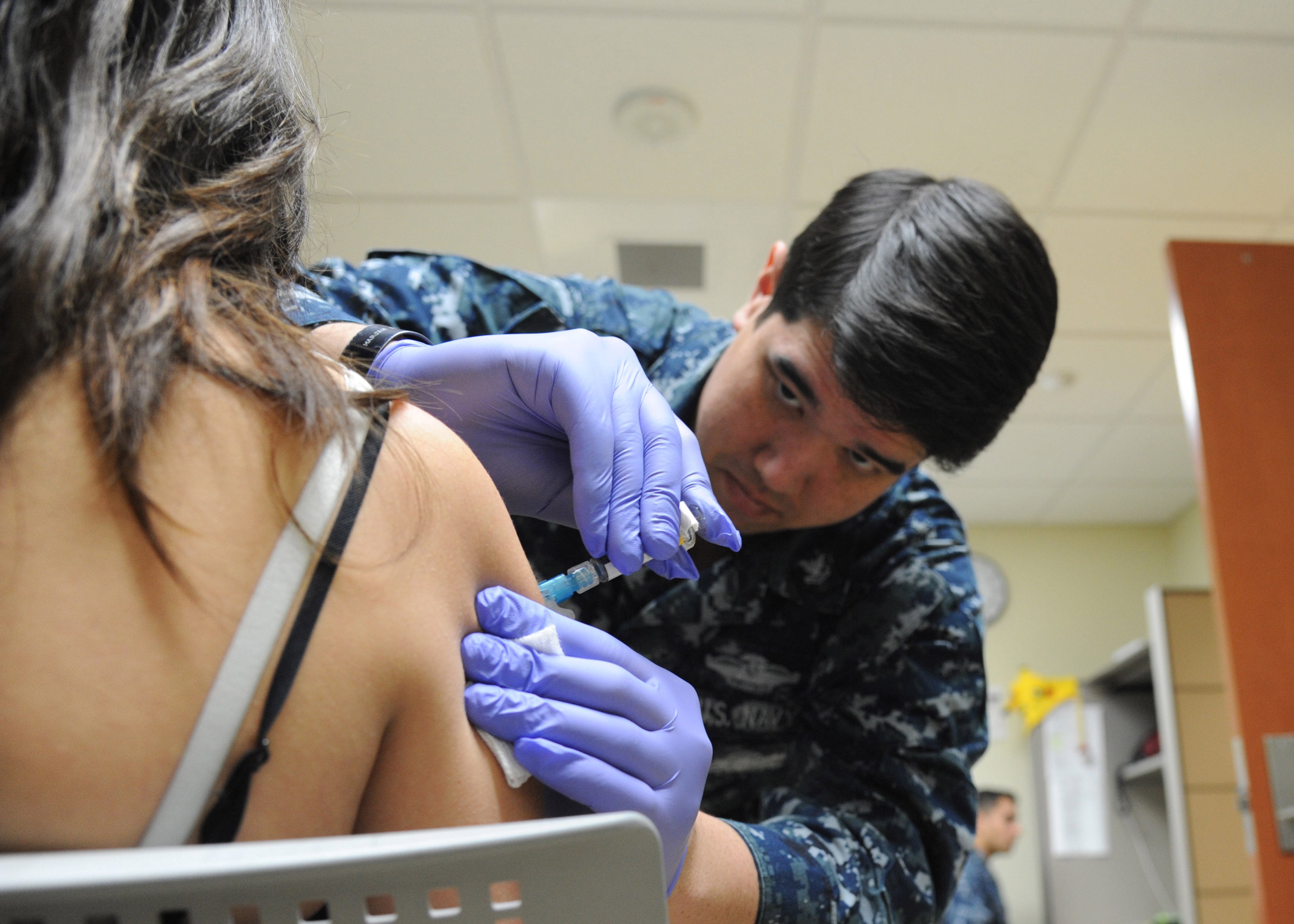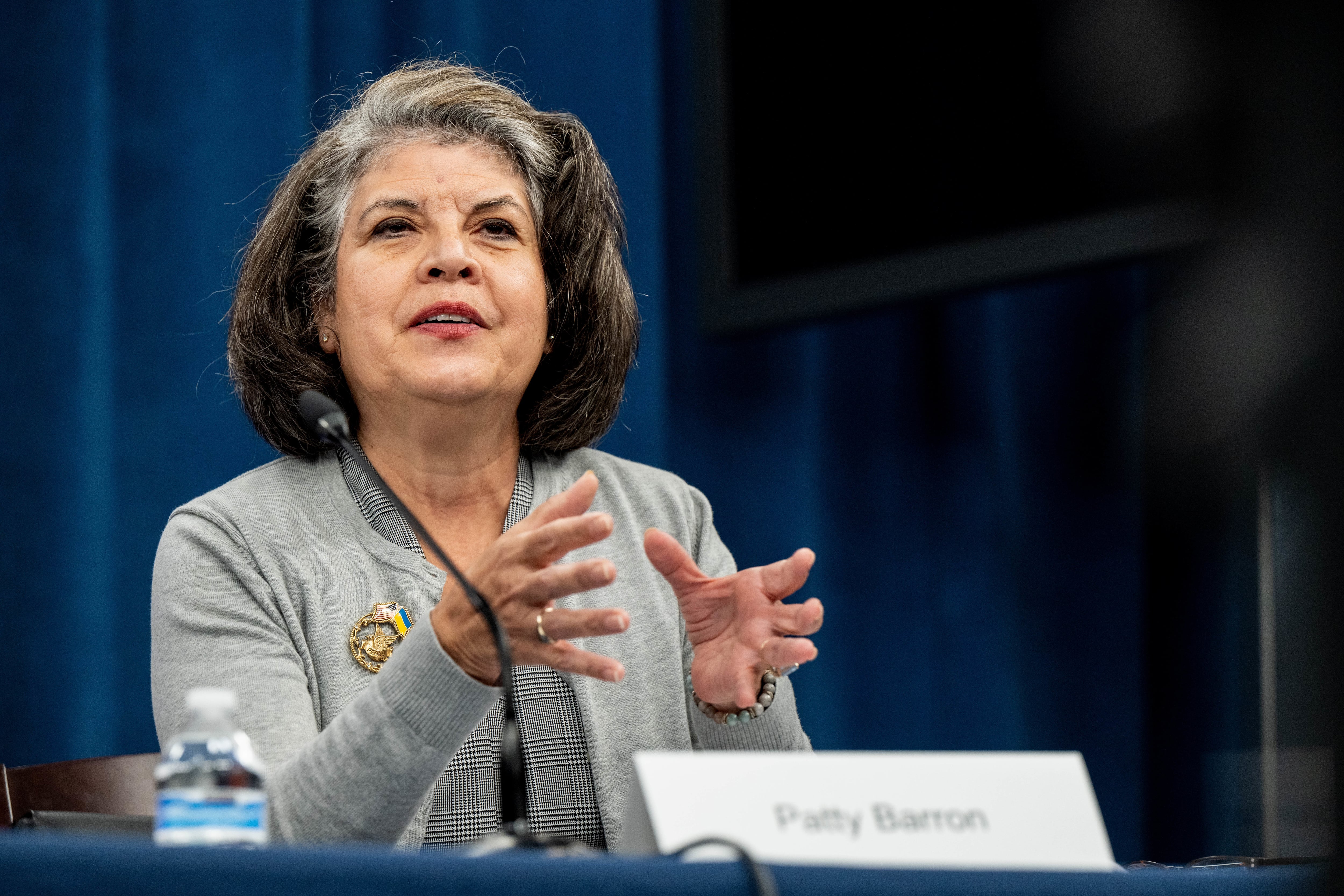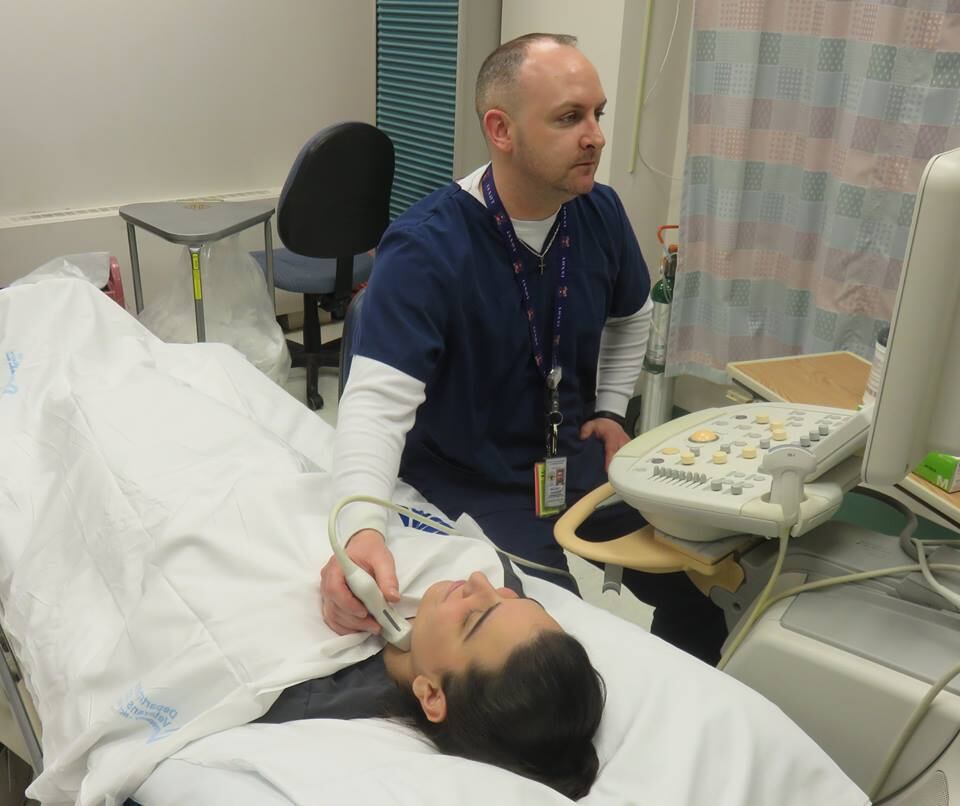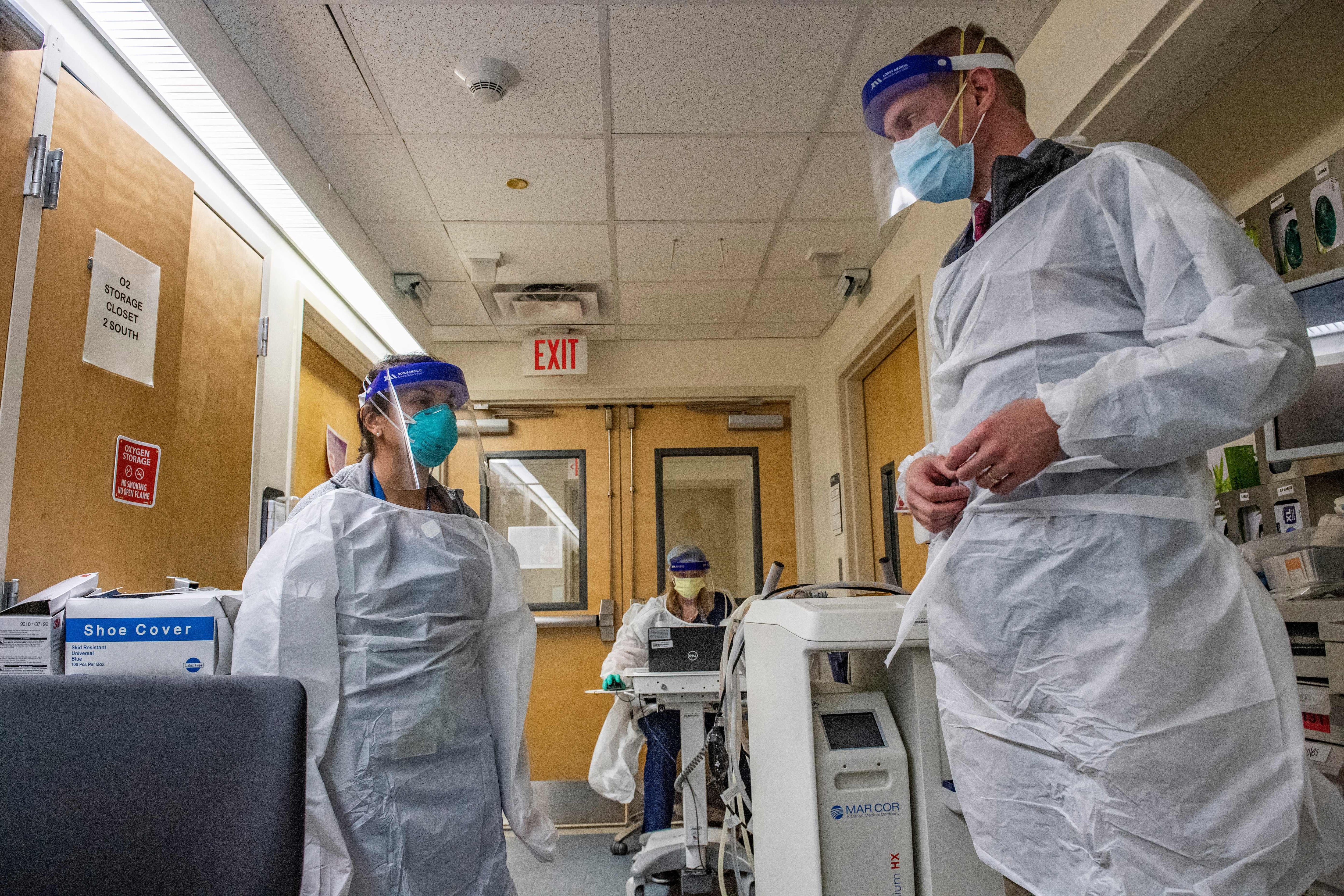When the Air Force's latest class of two dozen aspiring remotely-piloted aircraft pilots convened at Initial Flight Training School in Pueblo, Colorado, Oct. 12, four of them had something unique: Enlisted stripes.
Four enlisted airmen -- three master sergeants and one technical sergeant -- entered the Enlisted Pilot Initial Class, or EPIC, alongside 20 recently-commissioned officers, Air Education and Training Command said in a release Wednesday. They will be followed by eight more aspiring enlisted pilots in two additional classes over the next few months.
These airmen, if they pass the class, will be able to fly the RQ-4 Global Hawk, an unarmed drone that conducts intelligence, surveillance and reconnaissance missions. The Air Force last December opened the door to allow some airmen in certain jobs to fly drones. But in August, the Air Force vastly expanded the eligibility to allow airmen in all career fields to apply.
By 2020, the Air Force expects as many as 100 enlisted airmen to be flying Global Hawks -- roughly half the total 198 Global Hawk pilots.
The Air Force is waiting to see how enlisted airmen do on the unarmed Global Hawk before allowing them to fly armed drones like the MQ-9 Reaper.
In a briefing with reporters at the Air Force Association's conference in September, AETC head Lt. Gen. Darryl Roberson said that the training for enlisted airmen will be exactly the same as what officers receive.
"Right now, there is no difference," Roberson said. "We did that very deliberately."
The Air Force does not disclose the identities of RPA pilots and sensor operators as a matter of policy, so their last names were blurred out of a photograph released by AETC. But one student, identified as Master Sgt. Travis, expressed gratitude when Air Force Secretary Deborah Lee James toured the school Oct. 17.
"I really like the direction that she shared with us and the direction she wants to go," Travis said in the release.
The Air Force did not disclose specifics about the pilots' backgrounds. But in September, Roberson said the four airmen "are very experienced and even familiar with RPA operations."
"These are going to be tech sergeants, master sergeants, who are either already sensor operators for other RPAs, or are in some way very familiar with the operations that occur," Roberson said.
Some airmen in the following EPIC classes may come without any expertise with RPAs, Roberson said in September.
"By the time we get to the 12th EPIC member, we are bringing in somebody who is not familiar, never been exposed to it, and comes from a different training area, so that we get the full gamut of somebody who really knows what's going on all the way to somebody who's never been exposed to it," Roberson said.
James congratulated the students and said they were "pioneers" in a new and growing career field.
"The integration of enlisted RPA pilots into RQ-4 Global Hawk operations is part of a broader effort to meet the continual RPA demands of combatant commanders in the field, ensuring they are provided with intelligence, surveillance and reconnaissance capabilities in their areas of responsibilities worldwide," James said in the release.
Initial Flight Training takes place at Pueblo Memorial Airport, and is taught by contractor instructors. It is overseen by Pueblo's 1st Flying Training Squadron under the 306th Flying Training Group at the Air Force Academy in Colorado Springs.
Stephen Losey is the air warfare reporter for Defense News. He previously covered leadership and personnel issues at Air Force Times, and the Pentagon, special operations and air warfare at Military.com. He has traveled to the Middle East to cover U.S. Air Force operations.





